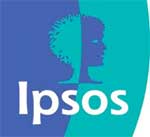Technology detox - simple solutions coming

Fear not, an increasing number of options are available for those seeking to detox from technology, from wallpaper that blocks WiFi to Internet-free holidays and software that forces you off addictive sites.
"People connect all the time, everywhere, in every position, lying down on their bed, at the restaurant, in the waiting room," says Remy Oudghiri, a director at French polling firm Ipsos and author of a book on the subject.
More and more people own devices that allow this. In the United States, over half of adults now have a smartphone, while more than a third own a tablet computer.
"This sudden surge in connection possibilities, after the initial period of enthusiasm, prompts every user to reflect on how to continue to enjoy life while taking advantage of their connection. How to avoid becoming dependent," Oudghiri said.
French researchers have come up with one solution, creating a special type of wallpaper that blocks WiFi, which materials company Ahlstrom is busy developing further with the aim of putting it on the market next year.
Spokesman Robin Guillaud says there has already been significant interest in the invention. Schools in particular have made enquiries, keen to prevent students from spending too much time hooked to their smartphones.
Need to disconnect
According to an Ipsos survey, nearly a third of French people now feel the need to disconnect, with similar trends recorded in other countries.
Separate research from the same firm found that in 2006, 54% of the French population felt people spent less time together as a result of the new technologies, a figure that leapt to 71% last year.
Companies have latched onto this lassitude, particularly in the tourism sector where some hotels and resorts offer digital detox packages.
The upmarket Westin hotel in Dublin, for instance, gives guests the option of surrendering their smartphones and tablets on check-in and provides them with a detox pack that includes a tree planting kit and a board game.
But it comes at a price: €175 per person per night.
Remote getaways
Other firms are offering more in-depth packages to really get away from it all. The US-based Digital Detox organises technology-free retreats to remote places in the United States or escape destinations such as Cambodia.
"Some of it is marketing", said Thierry Crouzet, a blogger who went cold turkey and disconnected for six months.
"There are loads of places that are tranquil. No need to book a tour operator that takes you to the North Pole."
The 49-year-old wrote a book about his experience called "I unplugged", after suffering from a digital burn-out that saw him so craving technology that he would sometimes check his email, blogs and Twitter at night.
"I see a lot of blogger friends who are easing off. Nearly everyone gradually takes breaks. We're realising that at the end of the day, it (technology) doesn't nourish us," he said.
But Crouzet admits that as a blogger who was going to write a book about his experience, it was easier for him to disconnect than it is for thousands of people who rely on email for work.
Intervention
As a result, some companies are implementing measures to try and relieve employees from being permanently contactable.
German car maker Volkswagen, for instance, in 2011 decided to stop sending emails to thousands of employees' Blackberrys between 6.15 pm and 7:00 am.
And for those who just cannot resist Facebook, Twitter or Google+, the website anti-social offers software that disables a list of distracting sites provided by the customer for a specified time period.
When all else fails, Internet rehabs are starting to spring up, such as reSTART, which bills itself as the first retreat centre programme in the United States.
According to its website, most of those they treat are between 18 and 28 and have checked in because they have had difficulty finishing college due to their Internet use, or establishing and maintaining off-line relationships.
The programme aims to teach participants about healthy eating, getting good sleep and how to address difficult emotions head-on rather than escape online.
The jury is out, however, as to whether those hooked on technology suffer from an actual addiction.
"I wouldn't use the word addiction, I'd use the word dependence," said Oudghiri.
"And it's not the same dependence as drug dependence as you can free yourself of it more easily," he adds.
Source: AFP via I-Net Bridge
Source: I-Net Bridge

For more than two decades, I-Net Bridge has been one of South Africa’s preferred electronic providers of innovative solutions, data of the highest calibre, reliable platforms and excellent supporting systems. Our products include workstations, web applications and data feeds packaged with in-depth news and powerful analytical tools empowering clients to make meaningful decisions.
We pride ourselves on our wide variety of in-house skills, encompassing multiple platforms and applications. These skills enable us to not only function as a first class facility, but also design, implement and support all our client needs at a level that confirms I-Net Bridge a leader in its field.
Go to: http://www.inet.co.zaRelated
What you need to know about the new direct marketing guidance note 11 Dec 2024 Names: Threads that connect us to our past, our present, and our hopes for the future 27 Sep 2024 Lessons in digital marketing from Sanlam’s Life of Confidence campaign 4 Sep 2024 TikTok's #MentalHealthAwareness: Better Together campaign supports users 25 Oct 2023 Report: Journalist response rate to pitches remains under 3% 13 Jul 2023 ChatGPT can help your email marketing strategy 29 Mar 2023


